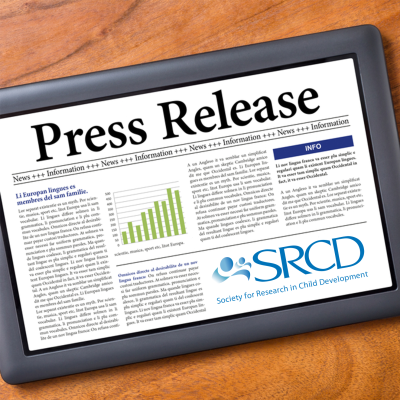Study Highlights Value of Acknowledging Adolescents’ Perspectives
PRESS RELEASE / CHILD DEVELOPMENT: Embargoed for Release on October 24, 2017
Across very different cultures—Ghana and the United States—when parents acknowledge the perspectives of their adolescent children and encourage them to express themselves, the youths have a stronger sense of self-worth, intrinsic motivation, and engagement, and also have less depression. Yet having the latitude to make decisions appears to function differently in the two cultures, with positive outcomes for youths in the United States but not in Ghana.
hose are the conclusions of a new study by researchers at Clark University that looked at approaches to parenting teenagers in the two countries. The study appears in the journal Child Development.
“A parenting approach that allows teens to feel they are being heard has been linked to youths being happier, more self-motivated, and more confident,” explains Kristine N. MarbellPierre, head of guidance and counseling at Ghana International School, who was at Clark University when she led the study. “This type of parenting is considered western in its approach and there have been questions about its benefit in nonwestern, more hierarchical cultures that place greater emphasis on respect for and obedience to elders by children and youths. In our study, helping adolescents feel that their perspective mattered was helpful to youths—in both Ghana and the United States—while the role of decision making and choice differed between the two cultures.”
The researchers examined responses to questionnaires filled out by 401 adolescents in seventh and eighth grades; 245 were from the United States and 156 were from Ghana. Teens answered questions about the extent to which their parents acknowledged their point of view and allowed them to make decisions, have choices, and express their opinions. Questionnaires also assessed the extent to which adolescents perceived their parents as controlling their behavior, as well as adolescents’ academic motivation, sense of self-worth, level of depression, and perception of themselves as independent from their parents or as a unit with their parents.
The study found that parenting approaches that encouraged students to express themselves and acknowledged their points of view boosted youths’ self-motivation, engagement in school, and self-worth, and decreased their levels of depression in both countries. Allowing adolescents to make decisions and have choices was associated with positive outcomes only in the United States. This difference in the effects of who makes decisions and of choice was in part due to how adolescents viewed themselves, the authors found: Those who saw themselves as independent felt that being allowed to make decisions supported their autonomy, while this was not the case for youths who perceived themselves as more a part of the family unit.
“Our study resolves conflicting findings from previous studies,” says Wendy Grolnick, professor of psychology at Clark University, who coauthored the study. “It suggests that supporting adolescents’ sense of agency is universally beneficial, but how this support is given may not necessarily look the same across cultures.”
The authors caution that while there are cultural differences overall between Ghana and the United States with respect to factors such as the extent to which autonomy is fostered in youths, there are also important variations across families within each culture that contribute to patterns for subgroups and individuals.
The findings have implications for how parents in different cultures can support positive development in their adolescents, suggest the authors. While some forms of support appear to function similarly across cultures, others appear to be culture-specific. Practitioners who work with parents should consider cultural differences as they recommend specific parenting strategies.
The study was supported by Clark University’s Frances L. Hiatt School of Psychology and the Jacob and Frances Hiatt Endowment.
###
Summarized from Child Development, Parental Autonomy Support in Two Cultures: The Moderating Effects of Adolescents’ Self-Construals by Marbell-Pierre, KN (Ghana International School, formerly at Clark University), and Grolnick, WS, Stewart, AL, and Raftery-Helmer, JN (Clark University). Copyright 2017 The Society for Research in Child Development, Inc. All rights reserved.


